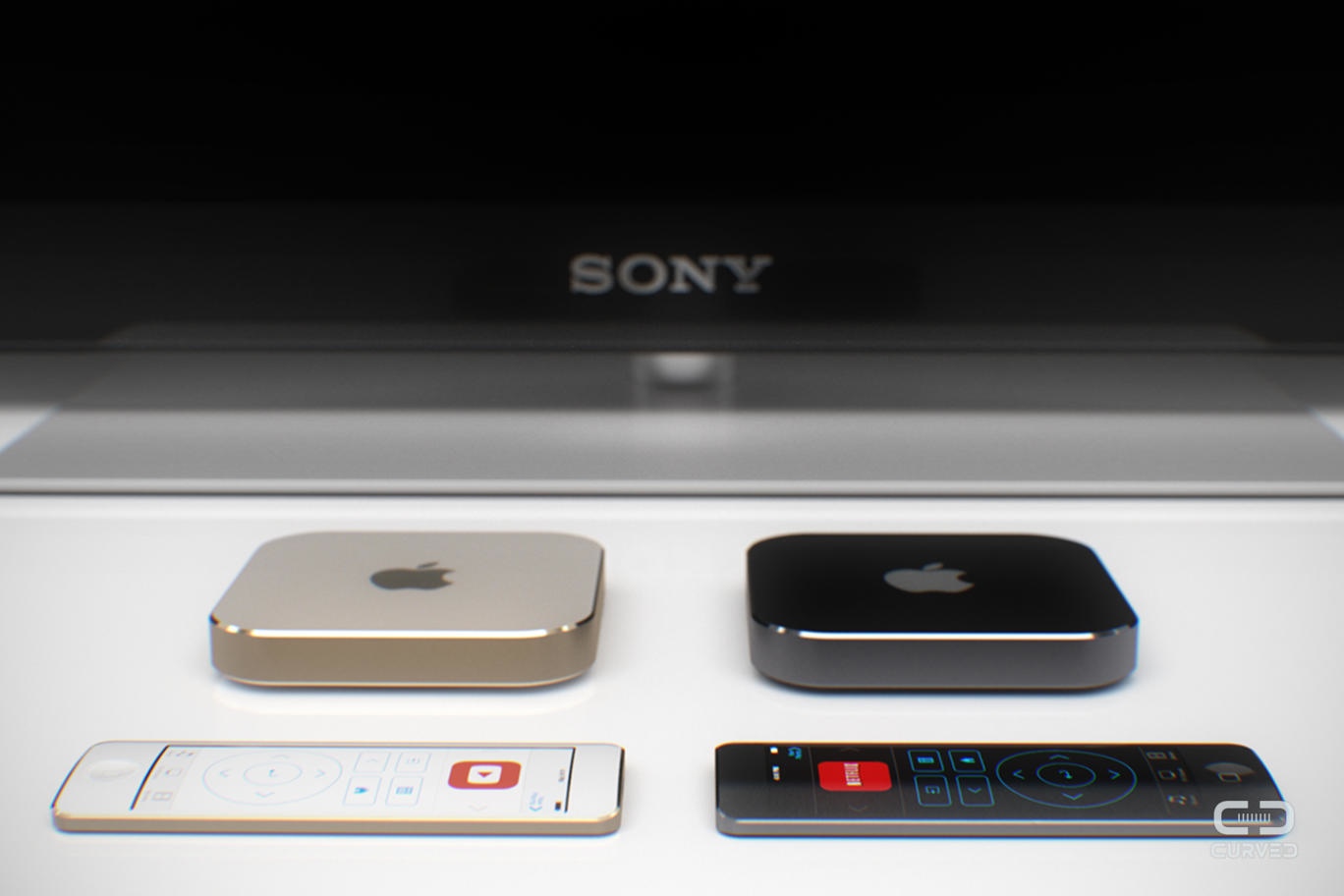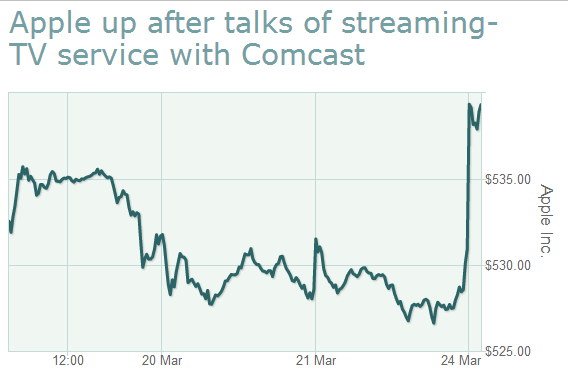Apple’s $99 media-steaming box last year raked in more than a cool $1 billion in combined hardware and related content sales, prompting CEO Tim Cook to argue during Apple’s annual shareholders meeting that “it’s a little more difficult to call the Apple TV a hobby these days.”
The company is reportedly updating the Apple TV hardware sooner than later with refreshed internals, allegedly adding gaming functionality via an Apple TV App Store for downloadable games and a built-in TV tuner to control your existing cable boxes and TV stations.
On the other hand, Apple thus far has been unable to obtain content rights for an a-la-carte TV service due to licensing negotiations and other issues. A report by The Wall Street Journal last night now claims that Apple is negotiating with Comcast using its infrastructure for optimal delivery of a streaming service for the next-gen Apple TV…
As Comcast is both a media/cable company and an Internet provider that owns the pipes which deliver bandwidth-hungry entertainment to people’s homes, Apple can’t bypass them so they’re now discussing the possibility of using Comcast’s cable network for its rumored Apple TV streaming service.
Comcast is said to give Apple special treatment to ensure optimal streaming experience over its infrastructure and is reportedly considering selling monthly subscriptions to its own channel bundles to Apple TV users.
WSJ has more:
Apple would benefit from a cable-company partner because it wants the new TV service’s traffic to be separated from public Internet traffic over the “last mile”—the portion of a cable operator’s pipes that connect to customers’ homes, the people familiar with the matter say.
That stretch of the Internet tends to get clogged when too many users in a region try to access too much bandwidth at the same time.
Apple’s goal would be to ensure users don’t see hiccups in the service or buffering that can take place while streaming Web video, making its video the same quality as Comcast’s TV transmissions to normal set-top boxes.
Apple wants Comcast to treat its video streams as a “managed service,” meaning video would stream over a special portion of the cable pipe, separate from the more congested portion reserved for public Internet access.
People familiar with the matter said that while Apple would like a separate “flow” for its video traffic, it isn’t asking for its traffic to be prioritized over other Internet-based services.
Comcast also has its own set-top box, the X1, and is now working on its successor.
However, one person familiar with the talks cautioned that Apple and Comcast are not yet close to an agreement. The main point of contention: the service quality Apple is asking for entails significant investments on Comcast’s part in network equipment and other technology.
Be that as it may, the guarantee of network quality coupled with Comcast’s channel subscriptions would enable Apple to advertise the next Apple TV as a fully formed TV service/box.
Should Comcast jump on the Apple TV bandwagon, other content providers and cable companies should follow suit and that’s exactly what the Apple TV project needs to take off in a big way – even more so given that Apple’s past efforts to secure premium TV programming for the Apple TV have proved futile as the company has failed to come up with a business model that media companies and cable providers would find appealing.
Furthermore, Apple must acquire significant TV programming rights from media companies, one of the people said. Comcast would want to ensure that the price Apple has to pay to acquire rights wouldn’t cause the service to be priced higher than traditional pay-TV service, this person said.
Apple has had discussions with Time Warner Cable since at least mid-2012, WSJ claims, but came to a standstill amid the Comcast-Time Warner Cable acquisition talks.
Another major hurdle to the deal: customer data.
In terms of Comcast subscriptions on the Apple TV, Apple wants to control customer data, demands its customary 30 percent cut on subscription sales and thinks people who subscribe to Comcast programming should authorize their account using their Apple ID.
On the other hand, Comcast apparently wants to “retain significant control” over the relationship with customers and the data.
This all happened before.
Publishers of magazines, newspapers and other periodicals were similarly complaining about Apple’s unwillingness to share information about iTunes subscribers. Most of them eventually relented and are now selling digital magazines and newspapers through iTunes.
And back in the early days of the iTunes Store, Hollywood majors were concerned about putting their movies on the iTunes Store. But after Apple signed up Disney as the first major entertainment company that had agreed to offer movies on the iTunes Store, most of Hollywood big shots would eventually follow suit.
As you can see on the chart above, AAPL was up this morning buoyed by talks with Comcast over the streaming-TV service.
Apple TV mockups by Martin Hajek and German-language Curved.de.



